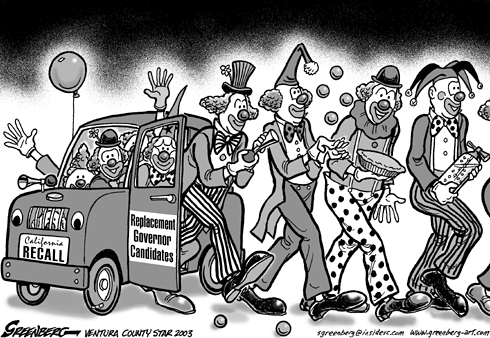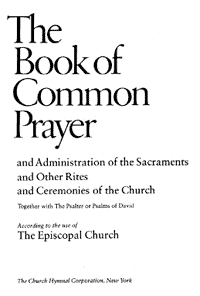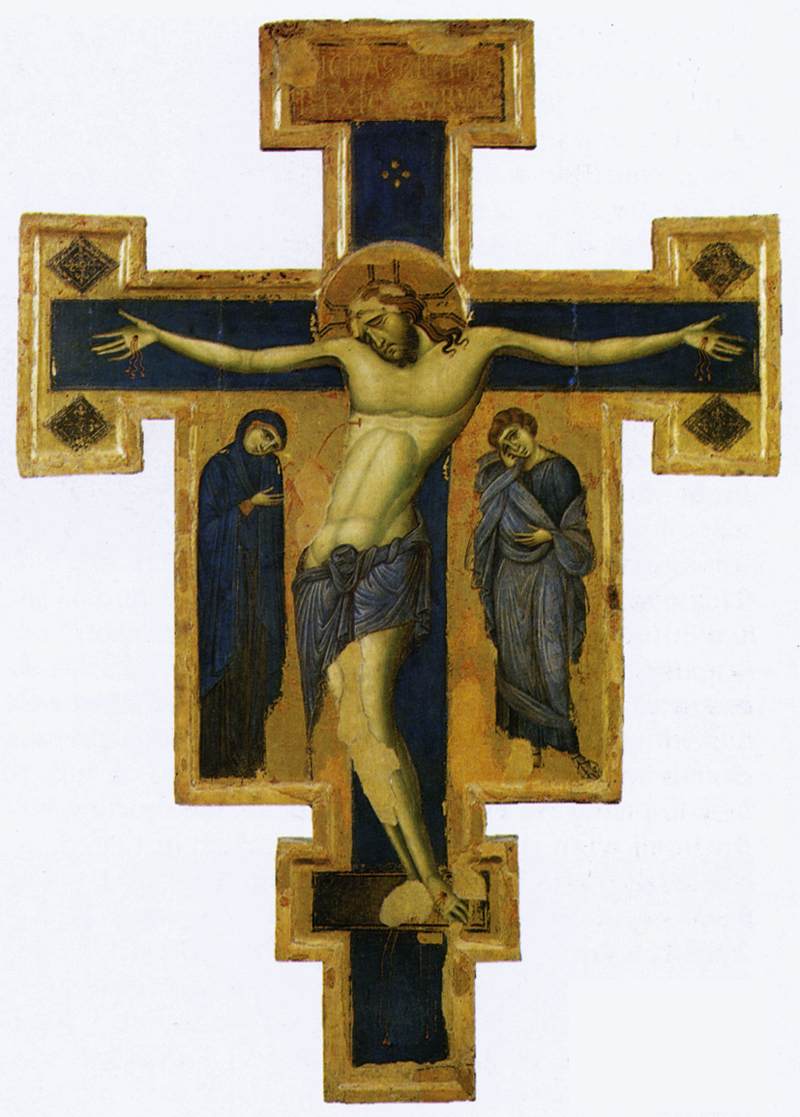I’m never sure why I write these things – these essays that
nobody reads. Maybe they’re just for my
own self-edification or to sort out my thoughts for my own sake to share with
no one. But, in the long run, it really
doesn't matter, now, does it.
Now that the dust is beginning to settle from General
Convention 2012, I’m beginning to ruminate about its consequences and
actions. Of course, what I think doesn’t
really make much difference. After all,
I’m a part-time parish priest with no real standing anywhere. Not that I’m complaining, mind you. I like it that way. Just putting my credentials, or lack thereof,
out there.
And on one level, I really have no dog in this race. Granted, I’m a partnered, gay man – today is
our ninth anniversary – so the whole same-gender unions thing is important – to
an extent. On one level, it doesn’t go
far enough. Gay folk are still second
class citizens in the Church and will remain so until the same rite used for
heterosexuals is used for us and we actually call gay relationships what they
really are: marriages. But what General
Convention has enacted is a good first step.
On the other hand, it really doesn’t make much difference to
me one way or another. What Ron and I
have is indeed marriage whether Holy Mother Church says so or not. But this isn’t a monologue on the theology
and history of marriage. That’s for another
time. We don’t really need the Church to
validate us. We can do that on our own,
thank you very much. And those we love
and care about and those who love and care about us see our marriage as
such. So does the State of
Washington. So, I guess in some ways it’s
a moot point.
The thing that I’m finding curious, and have for some time
now, is the manner in which this issue has become so divisive. Not that it shouldn’t be. There will always be differences of opinion,
deeply held opinion, on such subjects. We
are, after all, humans and when one puts two human beings in a room and asks
each the same question one will receive three opinions, at least! That’s the way we’re hardwired.
Both “sides” of the opinion field come from basically the
same place. Both come to heart-felt
beliefs – for which they are willing to die in a ditch – to some degree
honestly and for various reasons as well as personal experiences, histories and
biases. Each side has its theological,
biblical and secular reasons for the conclusions to which they have come. Each side also ignores the facts that the
other side presents. And each side
believes that its opinion is the right and only conclusion to which any
committed Christian can come.
When one boils it all down, theology isn’t really the
issue. As a colleague reminded me, this
is much more a psychological issue than an issue of belief. Each side has had its feelings hurt....badly;
though each side would be loathe to admit it. Many of those quarreling are men and men in
general wouldn't know a feeling if it slapped them in the face - especially
white, Anglo-Saxon men. For the
conservatives dealing with the marriage issue, I really think that their real
problem is the "ick" factor. Comments I've read center on what
two men do in the bedroom but rarely what two women do. It seems to be a
visceral reaction to something they consider beyond distasteful. Well,
the ick factor is OK. It's what they're feeling. But basing one's
argument on feelings rather than facts isn't a helpful way to come to
conclusions. The exact same can be said about the GLBT community.
While its paranoia may be based in some profound experience of personal and
communal history, at some point those feelings of paranoia need to be worked
through and healed. Wallowing in self pity is never the road to
wholeness. The Church, at least the Episcopal Church, isn't a place where
such self pity is necessary. The Gospel
of Jesus is about transformation and healing, not wallowing in the muck. The cross was three hours. The resurrection is eternal.
However, ours is not a Tradition of blacks and whites, of
knowledge of the ultimate truth beyond some basics like “Love God, love your
neighbor.” We have always been a
Tradition of multiple opinions, practices and beliefs. We have even gone so far as to label the
adherents to these beliefs and practices as “parties” at different points. These parties have fought and scrapped for
their beliefs, sometimes vociferously.
And when the dust had settled, they gathered around the same Table and
broke bread together and passed the Cup, understanding that what they held
dearest was still incomplete at best.
Our present situation is different, and I might add, in my
opinion quite un-Anglican and certainly un-Christian. Each side has based its opinion on their
experience of the Divine, its study of Scripture and theology and its own personal
and cultural biases. This is all fine
and good and as it should be. How else
does one come to a conclusion? At the
same time, each side has taken on the role of being the mouthpiece for God –
claiming ultimate, sole truth – while demonizing the other. Accusations are made of the other side being “un-Christian,”
or “bigots,” or certainly on the road to hell.
People have walked away from the table while the other side has said, “Good
riddance.”
Some have made the argument that the Church has declined in
membership because of certain trends within its ranks and have abandoned her like
rats on a sinking ship without looking at the statistics. These statistics reveal that all churches are
declining in membership especially the evangelical churches and the Roman
Church. However, I believe that the
decline in membership within the Episcopal Church has little to do with Prayer
Book revision or the ordination of women or the blessing of same-gender
unions. I believe that the decline in
membership among the churches and especially the Episcopal Church is due to the
fact that those outside the Church do not see an outward and visible sign of
the presence of Jesus. We have willingly
left behind our call as a Tradition offering to the world a community in which
to deal with the ambiguities of life and faith and have replaced it with the
need for being “right.” We have lost our
abilities to see that the other side may have a kernel of truth buried
somewhere. And we have lost the mutual
respect for each other to which our Baptismal Covenant calls us, not to mention
Jesus himself. We have become – each side
of us – has become arrogant and self-righteous at the expense of the other and
at the expense of the Gospel. And the
time has come for us to cease and desist and return to the humility before God
to which Jesus calls us.
The prime example of this phenomenon is seen regarding the full
participation of the GLBT community. Over
the past forty years, the GLBT community within the Church has been vocal about
the pain it has suffered feeling like second class citizens. It has blamed who are labeled “conservatives”
as being narrow minded and bigoted and the source of its pain. Those who object to the full participation of
the GLBT community within the life of the Church have labeled this community as
“sinners” or worse and the decision of the Church to bless the unions of
same-gendered couples as a betrayal of Scripture and tradition and even God “himself.” This betrayal is blamed on abandoning the
true faith at best and at worst heresy.
And this betrayal is the fault of the liberals who are much more
concerned with being politically correct than faithful. And the actions of these liberals have caused
them such great agony. And for each
side, the only way that such pain can be alleviated is by the former abandoning
its position and firmly taking up and firming the cause of the latter.
But we have always been a Tradition of the middle way. From the time of Elizabeth I, we have always
not just tolerated but celebrated the fact that while striving for the same
thing – reconciliation and renewal of the world in Christ – we approach it from
different vantage points and places.
Ultimately, we have affirmed the same Creeds and prayed from the same
Prayer Books and read the same Bible but been open to various and sometimes
seemingly and actual opposite interpretations of the same. And we have lived comfortably with that
knowing that our knowledge of God is miniscule compared to the Being of the
Divine. But we have forgotten that we
are but human. We have forgotten that we
are fallible and inconsistent beings created in the image of God whose love for
us is infinitely beyond our comprehension – and not just us, but for the whole
world. And until these trends are admitted,
addressed, worked through and healed, the Church as a national institution will
continue to flounder and make absolutely no difference in the world. We will continue to be viewed as hypocrites
and Pharisees by the vast majority of the population and rightfully so.
I am certainly not willing to claim to be the mouthpiece of
God but I am willing to offer an educated opinion based on my own sense of the
Divine and the teachings of our Lord with the caveat that I may be totally
wrong. However, the opinion is that the
Church as institution needs to move into new – or old – territory. I believe that she is being called to be a
witness to the love of God made manifest in the person of Jesus of Nazareth
whom we call “the Christ.” This is not a
new call. But she needs to begin the
process of listening and hearing from both sides of the ecclesiastical spectrum
all over again. She needs to acknowledge
that among her children there are those who hold beliefs and opinions so dear
to them that they are willing to die in a ditch for them. The last thing she needs to do is tell her
children to “play nice.” Nice never
solves anything. It just fosters smoke
screens and subtle – or not so subtle - dishonesty. But what Holy Mother Church MUST do is insist
- in the name of Jesus Christ - that we affirm the vital things that unite us:
the faith in the Trinity, the Humanity and Divinity of Christ, the Sermon on
the Mount, the Golden Rule; and refuse to condemn each other for the things
that divide us. Agreement is not the
goal. Honesty is the goal. Mutual respect in the midst profound
differences is the goal. The end of
judgment and condemnation is the goal. Humility
is the goal. In a word, the Gospel is
the goal.
Only when Holy Mother Church has begun the healing process
between her children can she get on with the real work of the Church: reaching
the world with the unconditional love of God in Christ. That’s our job. That’s our mission. We’ve spent enough time arguing with and
condemning each other about tertiary issues and put the Gospel on the back
burner. And the world is laughing at us
and rightfully so. And, at the risk of
being the mouthpiece of God, God is shaking the divine head and rolling the
divine eyes.
The Anglican Communion in general and the Episcopal Church
in particular – among others – has the best “product” on the market. Our worship is second to none. Our theology is intentionally broad – for the
previously stated reasons. Our music is
glorious. We reach out into the world trying
to alleviate human suffering. We have a
commitment to justice and peace not based on political correctness but in our
response to the teachings of Our Lord. But
our advertizing is horrendous. And the
only way we can correct it is to return to the foundations upon which our
Tradition was founded. We need to return
to the Gospel which unites us and agree to disagree on the secondary and
tertiary issues – for they have become the Devil among us - and get on with the
work of renewing the world in Christ.
Therefore, I, a simple parish priest of little account – who
likes it that way! – call upon the hierarchy of the Episcopal Church – and maybe
even the Anglican Communion - to invite all its delegates and bishops and any
other of the interested faithful to assemble and begin the process of the
renewal of the Church. The hierarchy
might invite someone like Archbishop Desmond Tutu as moderator of this gathering
= after all, I am talking about truth and reconciliation. The venue doesn’t have to be a trendy
convention center and its participants housed in fancy hotels. Such a gathering and such renewal must be
based in a sincere desire for reconciliation between those whose heart-felt
beliefs are very different with the intent of returning to the mission to which
we are called. It must be based on a
sincere desire to let go of the need for being “right.” It must be based on stating beliefs and
feelings in humility and respect for those whose beliefs are at the other end
of the spectrum. It must be based on the
sincere and heart-felt belief that condemnation and judgment have no place
among Christians. It must be based on
the sincere willingness to listen to the deep convictions and hurts of the “other”
and understand that such convictions and hurts are not based necessarily in
malice or ill-will but a profound commitment to faith as the “other” sees it. It must also require that each “side” take
responsibility and ownership for its own pain and anguish and cease blaming the
other as its cause and insisting that until the former side agrees with the
latter, the pain will continue. Such a
gathering must gather based on the profound and stated belief that we might understand
what it means to “forgive us our sins as forgive those who sin against us.”
When this process has begun, then those assembled must
recommit themselves to the Gospel of Jesus Christ – to the basics of the “faith
as this Church has received them.” Such
gatherings may start out small and take much time and many gatherings but in
the end such gatherings must have at their goal the recommitment to seeking the
will of God though the clues may be in shadows and the answers ambivalent and
vague – which they always are – without becoming polarized, self-righteous or
given to blame. Such gatherings must
recommit themselves to providing Eucharistic communities where those who have
frequently seen us as hypocrites and Pharisees feel welcome to join us in trying
to figure out the mystery of life in communion with the Divine and Holy
One. At some point, each bishop and
delegate needs to return to his/her diocese and begin the same process at
home. Within dioceses which have come to
some resolution on the given issues and maybe others, the process needs to
happen anyway. And from the diocese to
the parish/mission. Then, and only then,
can the Church begin to grow – not with the intent of increasing numbers of
butts in the pews and pledges in the coffers, but with the intent of bring hope
and wholeness to a suffering world. It
is only then that Holy Mother Church can regain her own hope and wholeness by
living out the mission to which she has been called.
























